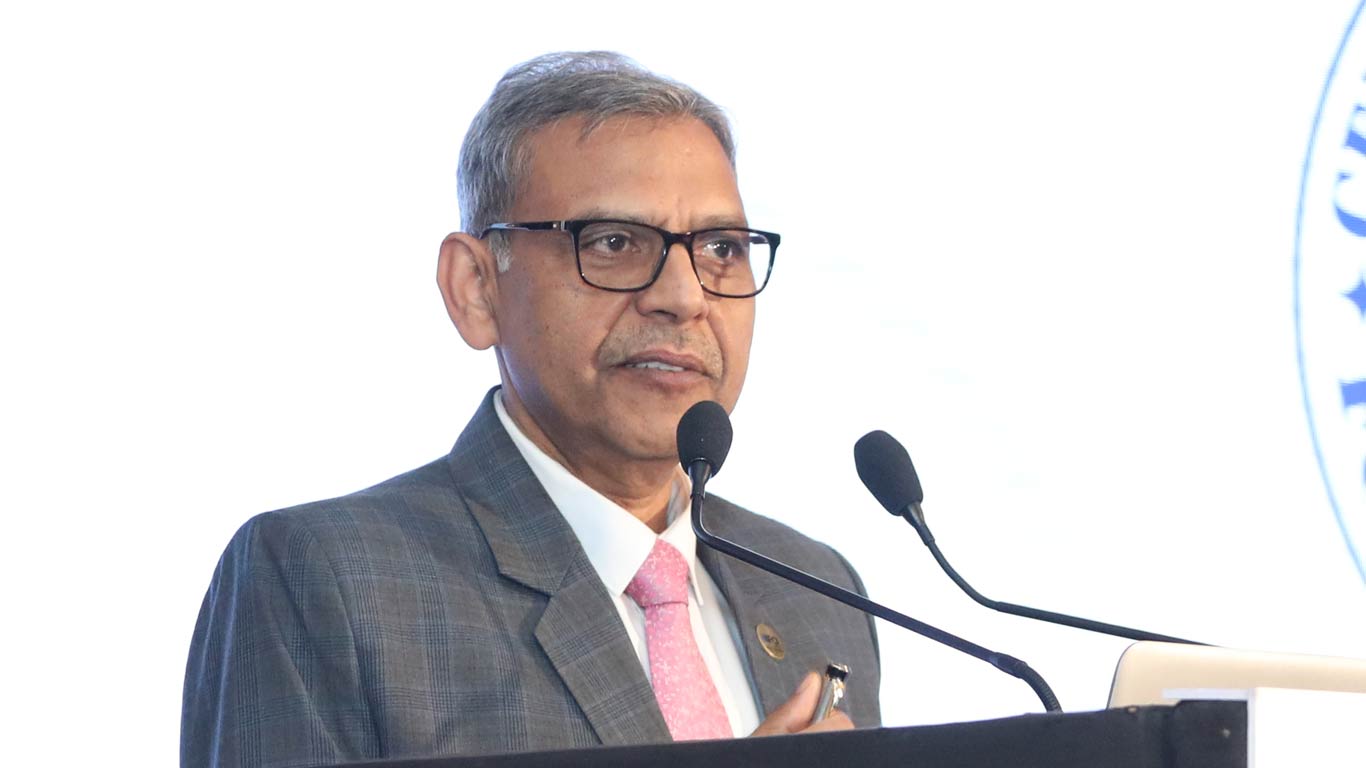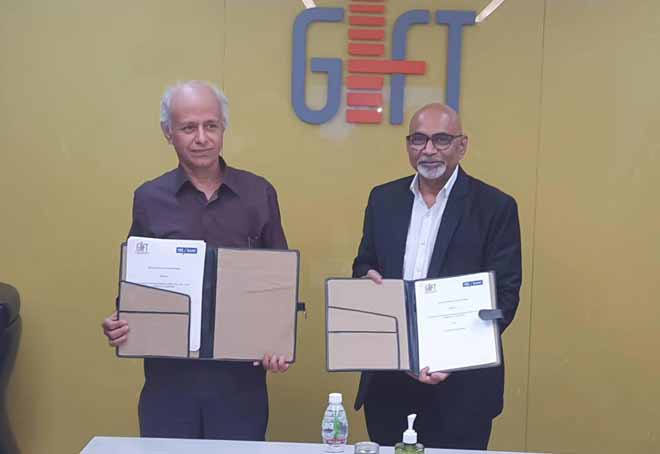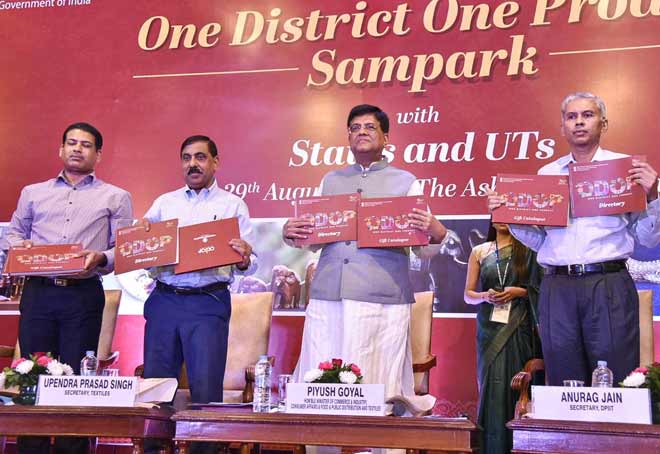Funding is the biggest challenge for start-ups, says PropTerry
Updated: Dec 23, 2015 01:20:41pm

1.To start with, please tell us something about PropTerry.
We have tie ups with more than 25 developers in Jaipur. We believe in “Selling Solutions, Not Promises”.
The company is based out of Jaipur, Rajasthan. Riding on our tremendous success here, we are all set to achieve the target of operating in six tier-2 and four tier-1 cities including Kota, Pune and Surat by the end of the next calendar year.
PropTerry solves the intricate problem of the customers having inadequate data about the market by having its own centralized public portal.
2. You have a business of its own kind, where did you get the idea to start PropTerry from?
Krishna Gupta, a former Larsen and Toubro employee, faced a lot of chaos while searching for a home in Jaipur while his family was shifting back here. The disorderly real estate market with its unorganized brokers’ segment made his search an extremely tiring one. However, it gave him some first-hand experience of the shortcomings in the sector. He felt that there is so much to do in this industry. After some research, he decided to enter the segment. What triggered the launch of the company was the bridging of the gap between the buyers and the information delivered to them. He believed that there needs to be a catalyst to nurture this relation and to bring maximum transparency. In June, 2014, Krishna Gupta founded PropTerry, a new generation real estate consultancy and management firm. It aims at providing both – the most accurate information and cutting edge real estate services, to real estate buyers.
3. What were the problems you faced during the initial stage of developing PropTerry?
During the initial stage of developing PropTerry, we observed that the industry was very unorganized. There was no uniformity in how the market functioned and in all this; the customer was always the one who suffered the externality. The builder payment rules were fairy inconsistent and, hence, a lot of the difficulty was because of that. Finding the right human resources and building the team of PropTerry was also a major issue.
4. Since funding is a real road rock for any start-up, how did you manage to get the funds for PropTerry?
We still have not received any funding. We are in contact with a few people regarding the same.
5. What is the size of your company (annual turnover)?
We have sold properties worth more than Rs. 50 crores in the previous year with an average sales team strength of just 5 sales people. It has a target of achieving sales worth more than Rs. 200 crores by next year.
6. What is the USP of your start-up?
PropTerry claims to be strategically different from the other portals, which are primarily
online property classifieds, and don’t have any offline end-to-end offering. It also claims that it
is providing cutting edge services to existing owners of properties, which is the most unique
proposition of the venture. Now, we are working on the technology, the operations, and the
process to organize second sales by franchise automation; this is an essential ingredient in our
goal to achieve national scalability. We want to work on new technology to design a better user
experience.
is your take in this regard?
E-commerce is going to be the fastest growing industry in the next decade or so. We, at PropTerry, believe that the growth of the e-commerce economy is great for retailers, and allows more people to shop for the goods they want, but it poses significant challenges to the last mile. The world’s two most populated countries, China and India, which bring an awful lot of buying power, face significant challenges. In India, for example, Morgan Stanley estimates that Indian online sales will hit $100 billion a year by 2020, up from $3 billion in 2013. The difficult part is figuring out the infrastructure this viable.
China faces its own set of challenges. The e-commerce market is growing exponentially in China and vast improvements have been made to establish more operations centers across the country. These improvements have made it possible for residents in rural China to shop online and receive orders in a timely fashion. But the last mile still remains an issue. One of the biggest roadblocks for Chinese retailers is the government policy banning freight vehicles and gas-fueled and electric tricycles in downtown areas. This poses a whole lot of problems.
In conclusion, the global e-commerce market is growing. In fact, according to eMarketer, global B2C e-commerce will reach $2.3 trillion by 2017. This explosive growth brings about new opportunities, new customers, and new challenges. One of the biggest challenges will be controlling the last mile. Logistics infrastructure, economic and political regulations, and competition have proven to be roadblocks for many companies. But we believe, as the market grows, the solutions will too.
8.How you see the growth and development of SMEs ( Small and Medium enterprises) in India?
Over the past decade, the Indian economy has demonstrated both remarkable acceleration in growth and employment and equally sharp deceleration. The high growth recorded during 2003-09 was based mainly on a sharp increase in the investment rate permitted by significant improvements in the savings of the public sector, particularly government, and by the private sector.
During the corporate-led growth process of 2003-09, the increased revenues of the government permitted expansion of both public infrastructure investments as well as SME investments. However, when the global crisis occurred, the corporate sector in India cut back sharply on its investment activities. Conversely, the SME sector actually further expanded its investments as a share of GDP quite significantly. Thus, the resilience of the Indian economy in the first two years after the crisis owed almost as much to the small and medium entrepreneurs in the country as it did to the government’s fiscal expansion. It appears that the
seems to be more attuned to the dynamics of the domestic economy.
Another source of possible efficiency increases comes from the higher levels of innovation, both product and organisational, which are possible in the SME sector. We do not as yet have systems which encourage and nurture such innovations. There are some efforts that are being made through incubation centres and early venture capital activities. These have, however, yet to reach scales where their impact is economy wide. Encouraging such activities should become a core activity in the coming years. This is not merely for attaining the desired growth rate over this Plan period, but as an important component of the inclusive growth strategy for the longer term as well.
There is a distinction between supporting entrepreneurship and supporting enterprises: a common confusion in policymaking. Clearly there are commonalities: ease of doing business, improving infrastructure, better governance, and so on. However, there are differences which arise from the size and age of the two categories. For instance, in cases of public procurement or PPP projects, the conditions almost always work against new companies. How this bias can be corrected without compromising on quality and time depends upon circumstances. Two successful cases in India have been the rural roads programme and the early years of the National Highway Development Programme.
It may, therefore, be possible to achieve and maintain growth rates of above 7% per annum
without any significant improvement in the global economy, relying mostly on the dynamism of
the Indian entrepreneur and the creation of financial space through government fiscal
correction. Taking this up to the 8% plus level, however, would require either favourable
developments in the global economy or additional policy action to improve both the efficiency
as well as the sentiments within the domestic economy.
9. What are your plans for Propterry in coming years?
Our company expansion will be a multiphase process. We are devising an agenda which
will be initiated with developing a technology. We will also get a positive head-start by working
on a reduced real-estate transaction time by 50%. The funds would be categorically spent on
standardising the whole transactional process of sale-purchase. We are also planning to
initiate franchising and organise the hyperlocal secondary sales which will comprise a $15
Billion market. Serious impetus will be given to infrastructure development and mobilisation of
local market. As mentioned above, we will soon launch our upcoming services, PropCare
being one of them. One of our major concern and proposition is incubating and establishing
our market in 5 tier-2 cities in Rajasthan and 4 tier-1 cities by the end of next fiscal year. We
will also seek international expansion in a few international markets like Dubai and
Singapore. We hope to build a strong market and expand successfully in all the arenas
planned.
10. Do you think the government is playing its role for the betterment of emerging enterprises?
Yes, we think so. Both the central are state governments are trying to be a part of this new era of start-ups in the country. Our hon’ble Prime Minister Shri Narendra Modi has always spoken about his tremendous support to all the emerging enterprises even at the international forums. The government is also coming up with a new start-up policy early next year aimed at facilitating the growth of the start-ups in the country along with scaling up the operations of the MUDRA bank. For those slightly cash rish enterprises, the SEBI has made the process of raising public capital much easier. (KNN/ Jyoti)












